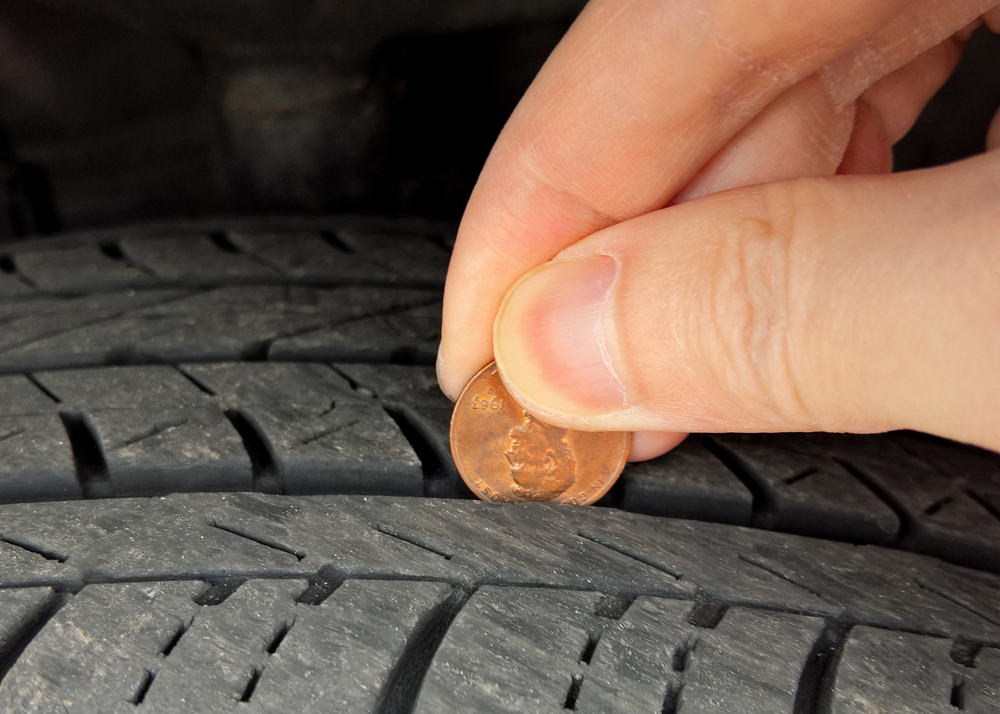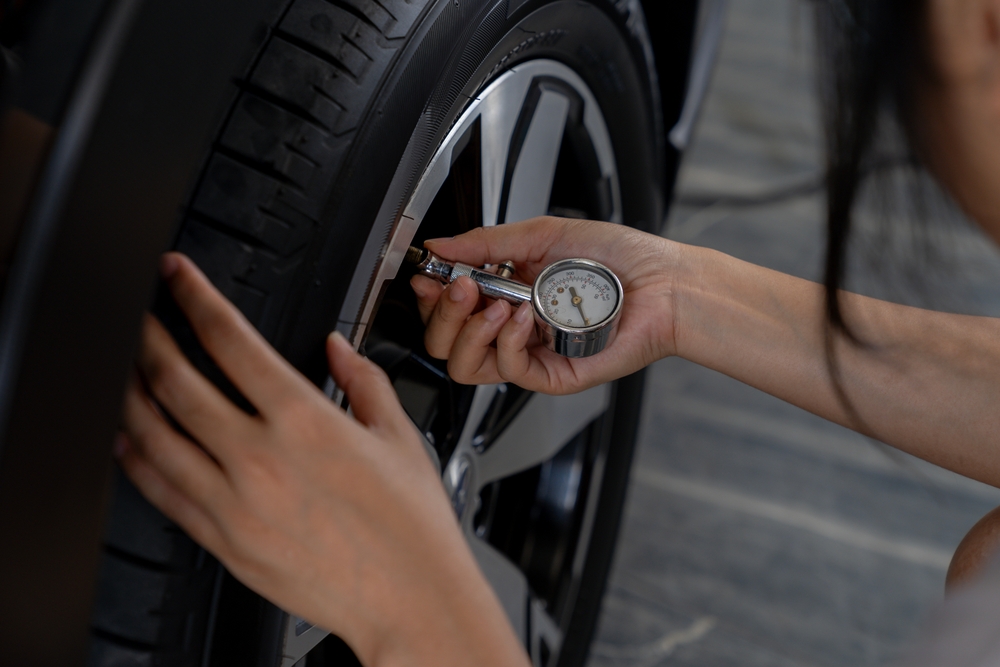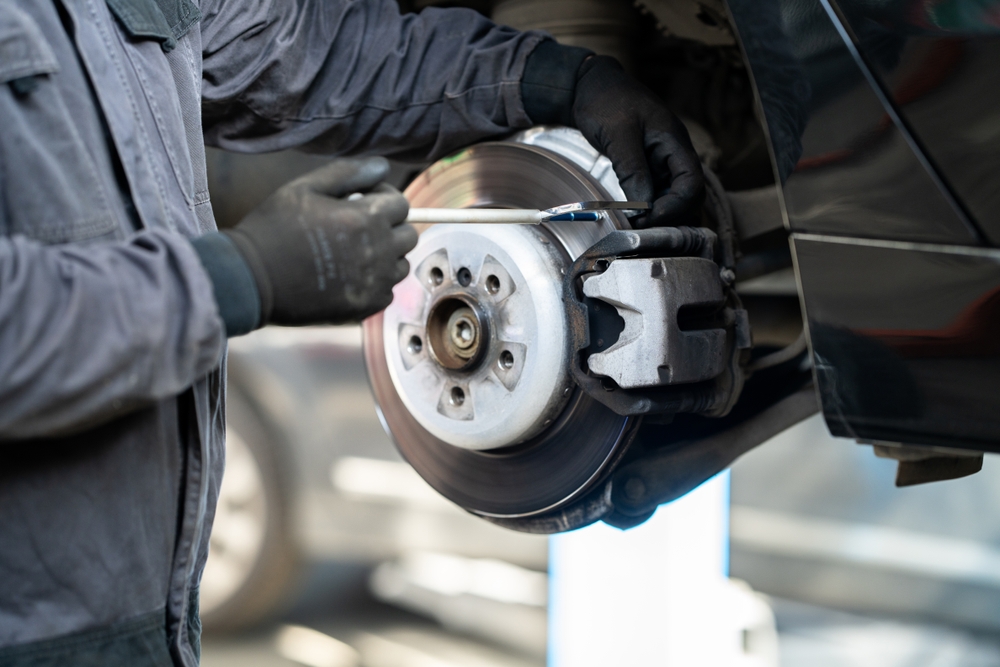Tennessee winters can be deceptively unpredictable. One morning you’re enjoying mild 50-degree sunshine, and by evening, freezing rain is coating I-40 in a layer of treacherous ice. For Toyota owners in Knoxville and across East Tennessee, this weather unpredictability isn’t just an inconvenience—it’s a genuine safety concern that demands proactive preparation. Black ice on bridges over the Tennessee River, sudden snow squalls in the Smoky Mountain foothills, and bone-chilling temperature drops that turn wet roads into skating rinks all require your vehicle to be ready for whatever Mother Nature throws at you. At Toyota Knoxville Service, we’ve spent years helping local drivers navigate these challenges safely, and we’re here to walk you through exactly what your Toyota needs to handle a Tennessee winter with complete confidence.
Why Winter Service is Non-Negotiable for Tennessee Drivers
Some folks assume that because Tennessee doesn’t experience the relentless, heavy snowfall of northern states, winter vehicle prep isn’t really necessary here. That assumption can quickly become dangerous. Tennessee’s winter weather is uniquely challenging precisely because it’s so variable—temperatures frequently swing from freezing to mild and back again, creating conditions that are honestly harder on vehicles than consistent cold. When roads freeze, thaw, and refreeze repeatedly throughout winter, you’re dealing with slick surfaces that form unexpectedly, often catching drivers completely off guard.
Consider the reality of driving through Knoxville during a typical January morning commute. You might leave your West Knoxville neighborhood under clear skies, only to encounter black ice on the Henley Street Bridge as you head downtown. The Tennessee Department of Transportation (TDOT) SmartWay system monitors road conditions constantly, but even with real-time updates, your first line of defense is always your vehicle’s readiness. Worn tires, weak batteries, and compromised braking systems don’t just make winter driving inconvenient—they genuinely put you and your passengers at serious risk.
Traction is King: Prepping Your Toyota’s Tires for Ice and Snow
Your tires are literally the only part of your Toyota that touches the road, which means they’re ultimately responsible for every bit of traction, steering control, and braking power you rely on. When temperatures drop and roads get slick, tires with adequate tread depth and proper inflation become the single most critical safety feature on your vehicle—far more important than any electronic stability system or all-wheel drive.
Check your tread depth religiously. The simple penny test works perfectly: insert a penny into your tire tread with Lincoln’s head facing down. If you can see the top of Lincoln’s head, your tread is dangerously shallow at 2/32nds of an inch or less, and you absolutely need new tires before tackling winter roads. For genuinely safe winter driving in East Tennessee, especially if you frequently travel through the Smokies or along rural roads where ice lingers longer, aim for at least 4/32nds of tread depth. Fresh tread channels water, slush, and snow away from your tire’s contact patch, maintaining the grip you desperately need when roads turn slippery.
Tire pressure is equally important but often overlooked. Cold weather causes air molecules to contract, which means your tire pressure can drop by one to two PSI for every 10-degree temperature decrease. Underinflated tires reduce your contact patch with the road, dramatically increasing stopping distances on icy pavement and making your Toyota harder to control in slippery conditions. Our technicians at Toyota Knoxville can browse our selection of Toyota-approved tires with you and ensure your current tires are properly inflated and rotated for maximum winter performance.
Beyond the Rubber: Essential Brake and Battery Checks
Even the best tires won’t help you if your brakes aren’t responding properly when you need to stop suddenly on an icy patch. Tennessee winters demand responsive, reliable braking systems because conditions can change so quickly. That slight downhill stretch on Chapman Highway might be perfectly dry one moment, then covered in black ice the next when temperatures drop unexpectedly after a brief rain shower.
Your brake system involves pads, rotors, calipers, brake fluid, and hydraulic lines all working together seamlessly. When any component starts wearing down, your stopping power becomes compromised—something you’ll notice immediately the first time you press your brake pedal on a slick road and your Toyota doesn’t slow down as quickly as you expect. At Toyota Knoxville, our factory-trained technicians can perform a professional brake inspection that comprehensively evaluates every component of your braking system, identifying potential problems before they become dangerous failures on icy roads.
Your battery deserves equally serious attention before winter arrives. Cold weather is brutally hard on car batteries because chemical reactions inside the battery slow down dramatically as temperatures drop, reducing the battery’s available cranking power precisely when your engine needs more power to start. A battery that starts your Toyota effortlessly in mild October weather might fail completely on a freezing January morning when you’re already running late for work.
Battery failure is almost always predictable if you’re paying attention to the warning signs. If your Toyota is cranking more slowly than usual when starting, if your headlights seem dimmer, or if your battery is more than three years old, it’s absolutely time to get a professional battery test at our service center. Our diagnostic equipment can accurately measure your battery’s remaining capacity and charging system performance, telling you definitively whether your battery will make it through another Tennessee winter or if it’s time for a replacement.
Maximum Visibility: Wiper and Fluid Service for Sleet and Slush
Being able to actually see where you’re going seems obvious, but it’s something many drivers take for granted until visibility suddenly disappears in a winter storm. Tennessee’s winter precipitation comes in frustrating varieties—freezing rain, sleet, wet snow, and that particularly nasty combination of road slush and salt spray that trucks kick up on the highway. All of these conditions require wiper blades that effectively clear your windshield and washer fluid that won’t freeze solid in your reservoir.
Standard wiper blades naturally deteriorate over time due to sun exposure, temperature extremes, and normal use. When you’re driving down I-640 during a winter storm with sleet pelting your windshield, wiper blades that leave streaks or miss spots aren’t just annoying—they’re genuinely dangerous because they obscure your vision of other vehicles, road hazards, and traffic signals. Replacing your wiper blades before winter is inexpensive and takes minutes, but it dramatically improves your safety in poor weather conditions.
The Tennessee Winter Safety Checklist (Before You Drive)
Beyond mechanical preparation, smart Tennessee drivers keep essential items in their vehicles throughout winter. Being prepared for the unexpected can make the difference between a minor inconvenience and a genuinely dangerous situation if you get stuck or stranded during a winter storm. Here’s what you should keep in your Toyota this winter:
- Emergency Kit Basics: A flashlight with fresh batteries, jumper cables, a first-aid kit, and blankets will keep you safe and reasonably comfortable if you’re stuck waiting for help in cold weather.
- Ice Scraper and Snow Brush: Even in Tennessee where heavy snow is less common, you’ll encounter ice on your windows frequently during winter mornings—make sure you can actually clear your windshield before driving.
- Non-Perishable Snacks and Water: If you get stranded during a winter storm on a rural Tennessee highway, having food and water available eliminates one significant worry while you wait for conditions to improve.
- Extra Warm Clothing: Keep an old coat, gloves, and a hat in your trunk. If you break down in cold weather, having extra layers can literally be a lifesaver while you wait for assistance.
- Phone Charger: A portable battery pack or car charger ensures you can call for help even if your battery dies or you’re stuck somewhere for an extended period.
Understanding Tennessee’s unique winter hazards helps you drive more safely. Black ice is particularly dangerous because it’s nearly invisible—it forms when temperatures hover right around freezing and moisture on the road freezes into a thin, transparent layer. Bridges and overpasses freeze before regular road surfaces because cold air circulates underneath them, making spots like the Pellissippi Parkway bridges especially treacherous during winter mornings.
When you encounter winter weather on Tennessee roads, adjust your driving dramatically. Increase your following distance to at least eight to ten seconds, reduce your speed significantly, and avoid sudden movements with your steering wheel or pedals. The National Highway Traffic Safety Administration (NHTSA) winter driving tips offer additional expert guidance on safe winter driving practices that work anywhere, including East Tennessee.
Tennessee Winter Service Essentials
| Service Item | Why It Matters for Tennessee Winters | Warning Signs to Watch For |
|---|---|---|
| Tire Tread & Pressure | Adequate tread channels away water and slush; proper pressure maintains traction on icy roads and bridges | Tread depth below 4/32″, uneven wear, low pressure warning light, pulling to one side |
| Brake System | Responsive brakes are critical when stopping distances increase dramatically on slick Knoxville roads | Squealing noises, soft or spongy pedal feel, vibration when braking, longer stopping distances |
| Battery & Charging System | Cold temperatures reduce battery capacity precisely when you need maximum cranking power to start your engine | Slow cranking, dimming lights, battery age over 3 years, corrosion on terminals |
| Wiper Blades & Washer Fluid | Clear visibility is essential during sleet, freezing rain, and road spray from highway traffic | Streaking across windshield, chattering noise, visible cracks in rubber, frozen washer fluid |
Frequently Asked Questions
Q: Does my Toyota really need winter tires in Tennessee?
A: For most Knoxville-area drivers, high-quality all-season tires with good tread depth work perfectly well for Tennessee winters. However, if you regularly drive through mountainous areas near Gatlinburg or Pigeon Forge where snow and ice are more common, dedicated winter tires can provide noticeably better traction and control. Winter tires use specialized rubber compounds that remain flexible in cold temperatures and tread patterns designed specifically for snow and ice.
Q: What is “black ice” and how can I spot it on Knoxville roads?
A: Black ice is an extremely thin, nearly transparent layer of ice that forms on road surfaces when temperatures hover right around freezing. It’s called “black ice” because you can see the dark pavement through it, making it almost invisible to drivers. Watch for conditions where black ice commonly forms: bridges and overpasses, shaded areas that don’t get direct sunlight, and roads near bodies of water like the Tennessee River. If temperatures are near or below freezing and the road looks wet, assume it might actually be ice.
Q: What should I put in a winter emergency kit for my car in Tennessee?
A: A good Tennessee winter emergency kit should include a flashlight with extra batteries, jumper cables, a first-aid kit, warm blankets, an ice scraper and snow brush, non-perishable snacks and bottled water, extra warm clothing like an old coat and gloves, a phone charger, and a bag of sand or kitty litter for traction if you get stuck. These items take up minimal trunk space but can make a huge difference if you get stranded during a winter storm.
Q: Is my new Toyota with all-wheel drive (AWD) automatically safe in the snow?
A: All-wheel drive definitely helps with acceleration and climbing hills in snowy or icy conditions by distributing power to all four wheels. However, AWD does absolutely nothing to help you stop faster or turn more effectively on slippery roads—those capabilities depend entirely on your tires and brakes. AWD is a helpful feature, but it’s not a substitute for good tires, proper maintenance, and careful winter driving habits.
Q: How do I know if my Toyota’s battery is weak before it dies in the cold?
A: Your Toyota will usually give you warning signs before the battery fails completely. Listen for slower cranking when you start your engine—if your Toyota takes noticeably longer to start than it used to, that’s often your first clue the battery is weakening. You might also notice dimmer headlights or interior lights. Most car batteries last three to five years, so if yours is approaching that age, it’s worth having it tested professionally even if you haven’t noticed problems yet.
Schedule Your Toyota Winter-Ready Service in Knoxville
Don’t wait for the first frost to discover your Toyota isn’t ready for Tennessee winter weather. The factory-trained experts at Toyota Knoxville Service are here to ensure your vehicle is genuinely safe for any conditions East Tennessee throws at you this winter, whether you drive a brand-new RAV4 or a trusted Camry that’s been serving you reliably for years. We have the right diagnostic tools, genuine Toyota parts, and specialized knowledge to handle comprehensive winter preparation efficiently and effectively.
With Tennessee’s unpredictable winter conditions—from black ice on Knoxville bridges to sudden temperature drops in the Smoky Mountain foothills—waiting to address potential issues only puts you and your passengers at unnecessary risk. Our thorough winter-ready inspection covers everything your Toyota needs to handle ice, snow, and freezing temperatures with complete confidence, ensuring you’re protected before the weather turns dangerous rather than discovering problems when you’re already stuck in hazardous conditions.
Click here to schedule your winter-ready inspection and drive with confidence all season long!
Or visit us at 10415 Parkside Drive Knoxville, TN 37922, and let our certified technicians prepare your Toyota for everything winter brings—we’re ready to help you stay safe on East Tennessee roads.






